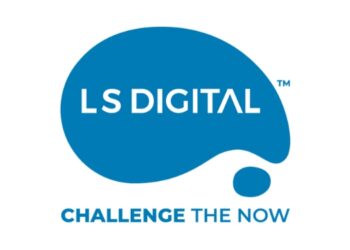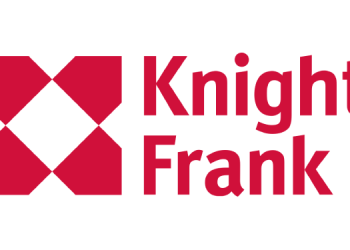MUMBAI: PwC’s Global Entertainment And Media Outlook has been published. It has given several suggestions to boost the country’s gaming and esport sector.
Promote responsible gaming practices: The Indian gaming sector is increasingly focussing on responsible gaming due to regulatory pressures. There is an increasing concern around addictive behaviour, cyberbullying, gambling and mental health. Efforts are being made to establish comprehensive frameworks to combat addiction, with states introducing relevant guidelines and the industry adopting self-regulation measures. Game developers are incorporating features such as time tracking and spending limits, while awareness campaigns are being organised to educate players on financial prudence and safe gaming practices.
Future trends include the use of AI and data analytics for real-time monitoring and interventions, stronger national regulations, global best practices adoption, and enhanced public-private partnerships. AI, big data and machine learning can be applied by gaming companies to analyse player behaviour to detect excessive patterns early. This data can be used to offer personalised support and guidance to players while adequately protecting their privacy. Gaming companies and platforms must also provide self-assessment tools and advocate for the use of self-exclusion features to help players manage their gameplay habits responsibly. Additionally, they must enable player defined limits (deposit limits, time locks amongst others) to promote responsible gaming practices and foster healthier relationships with gaming.

Improve investor confidence: The Ministry of Electronics and Information Technology (MeitY) PwC noted has introduced a self-regulatory framework for the online gaming sector in India, although plans to establish self-regulatory bodies (SRBs) are currently on hold as consensus among stakeholders is awaited.36 SRBs are anticipated to boost stakeholder confidence by fostering ethical practices, ensuring a stable regulatory environment and promoting adherence to global standards. Furthermore, they are expected to drive innovation through indigenous research and development, enhancing India’s competitiveness as a global innovation hub, while also ensuring swift grievance redressal and compliance with legal frameworks, thereby building trust and investor confidence in the process.
Invest in AAA games: India’s gaming industry has seen notable success in mobile and mid-core games, but the development of AAA games – highbudget, high-profile games that are often produced and distributed by large, well-known publishers – remains in its early stages. Creating AAA titles requires substantial investment, typically between $30–300 million, posing a significant challenge for
Indian developers. Moreover, AAA game production involves large teams of 100–500 specialists in design,
development, art, writing, testing and marketing, with development cycles spanning 5–7 years. While interest in Indian gaming studios is growing, the required level of investment for AAA games is still developing.
However, India’s potential in this space is evident. The country has a rapidly expanding talent pool, supported by Government initiatives such as the AVGC policies, aimed at fostering skill development. With strategic investments, enhanced skills and continued Government support, India could make a significant impact in the global AAA gaming market. By creating games that blend India’s cultural heritage with the quality standards of AAA titles, developers can set new industry benchmarks. AAA games are also fuelling the rise of esports in India, gaining popularity in professional gaming circuits and
integrating Indian cultural elements to resonate with domestic audiences.
Make Indian gaming studios an integral part of the global gaming value chain: Several Indian gaming studios have gained prominence. In addition to developing popular games, these companies are exploring innovative monetisation strategies and expanding their reach through partnerships and new projects.
Globally, the trend of acquiring gaming studios has been significant, especially during and after the COVID-19 pandemic. Driven by the desire to expand gaming portfolios and leverage popular game franchises, this trend is also on the rise in India. Companies are looking to boost growth and tap into
the lucrative gaming market. In August 2024, a listed media and gaming firm announced that it acquired a UK-based gaming studio that makes story-based games in an all-cash transaction.
An Indian mobile gaming company acquired a Middle East-based gaming company last year to expand its presence in key international markets and tap into new demographics to fuel growth.
Apart from Indian gaming companies starting to acquire global companies, homegrown Indian games are also expanding their footprint by tapping into global markets through culturally rich, high-quality content. Certain India-based games successfully launched on global platforms are gaining international
recognition for blending Indian mythology with modern gameplay. Moreover, homegrown developers
are capitalising on mobile gaming’s popularity in regions like Southeast Asia, the Middle East and parts of Europe. Partnerships with global distributors and publishers have further enabled Indian games to access wider audiences globally.
Leverage GenAI to elevate the user experience: GenAI has already become an established part of video game development, with game developers using GenAI tools to assist in coding and creating game components. GenAI can be used to enhance dialogue generation, animation and chat moderation. Gaming companies are investing and experimenting with GenAI to improve gameplay and creative expression and to provide more immersive experiences. GenAI tools under development will allow non-layer characters (NPCs) to evolve beyond predefined roles, adapt to player behaviour and learn from interactions, essentially enabling the shift from dialogue- to playerdriven narratives.
Explore gaming-as-a-service (GaaS) opportunity: Bundling cloud and non-cloud games under subscriptions is driving new ways to play. In this context, GaaS is an evolving opportunity for the gaming community at large wherein indie developers and gaming giants can coexist by leveraging predictable revenue through precise marketing. With barriers to play such as expensive hardware removed and greater opportunities for bundling music and movies opening up, the platform and player can evolve together, crafting experiences that resonate deeper with users.
Doing so can help the platform and the player leverage subscription-based models in collaboration with non-gaming entities like telcos and media firms, which can effortlessly integrate gaming as a new vertical, thereby enriching their comprehensive media offerings. Adopting such an approach provides the platform with the much-needed financial bandwidth to invest into building more engaging games. Moreover, such an inclusive approach empowers companies to transcend traditional boundaries and embrace diverse entertainment landscapes with agility and lesser friction.

















